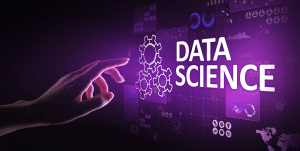DATA SCIENCE
Unraveling the Hidden Patterns: Dive into the World of Data Science
In today’s digital age, the world is awash with an overwhelming amount of data. From social media posts and website analytics to sensor readings and financial transactions, there is a wealth of information just waiting to be tapped into. However, this abundance of data is of little value if we cannot effectively make sense of it. That’s where data science comes in.
What is Data Science?
Data science is an interdisciplinary field that combines statistical analysis, machine learning, and programming to extract knowledge and insights from data. It involves using various tools and techniques to collect, organize, analyze, and interpret data in order to uncover hidden patterns, make predictions, and drive informed decision-making.
The Role of Data Scientists
Data scientists are the masterminds behind the scenes, leveraging their expertise in mathematics, statistics, and computer science to delve into complex datasets. They possess a unique skill set that allows them to identify trends, create predictive models, and develop advanced algorithms. Equipped with this knowledge, they can help businesses gain a competitive edge by transforming raw data into actionable insights.
Why is Data Science Important?
Data science is revolutionizing industries across the board. By harnessing the power of data, organizations can drive innovation, optimize processes, and enhance customer experiences. From healthcare and finance to marketing and logistics, data science is being used to solve complex problems and make informed decisions. It enables businesses to uncover valuable insights, identify trends, and even predict future outcomes, all of which can lead to better outcomes and increased efficiency.
mastery Required for a Successful Career in Data Science
The field of data science requires a diverse skill set. While technical expertise is vital, other skills such as problem-solving, communication, and critical thinking are equally important. Some key skills for a successful career in data science include:
- Programming Languages: Proficiency in programming languages such as Python, R, and SQL is essential for data scientists. These languages allow them to manipulate and analyze large datasets efficiently.
- Statistical Analysis: Data scientists must have a strong foundation in statistics to make sense of the data they work with. They use statistical techniques to identify patterns, test hypotheses, and draw meaningful conclusions.
- Machine Learning: Machine learning algorithms and techniques are at the heart of data science. Data scientists need to understand how these algorithms work and how to apply them to solve specific problems.
- Data Visualization: Effective communication of insights is crucial in data science. Data scientists should be able to present complex information in a clear and visually appealing manner.
- Domain Knowledge: While not strictly a technical skill, domain knowledge can greatly enhance a data scientist’s ability to understand and analyze data within a specific industry or field.
Challenges and Ethical Considerations in Data Science
While data science holds immense potential, it is not without its challenges and ethical considerations. Data scientists must navigate issues such as data privacy, bias in algorithms, and ethical use of data. They should be aware of the potential implications of their work and strive to build models and systems that are fair, transparent, and accountable.
Conclusion:
Data science is rapidly transforming industries and reshaping the way we make decisions. With its ability to uncover hidden patterns and provide actionable insights, it has become an invaluable resource for businesses seeking to gain a competitive edge. By combining technical expertise, critical thinking, and effective communication, data scientists play a crucial role in unlocking the power of data. So, dive into the world of data science and unlock endless possibilities!






